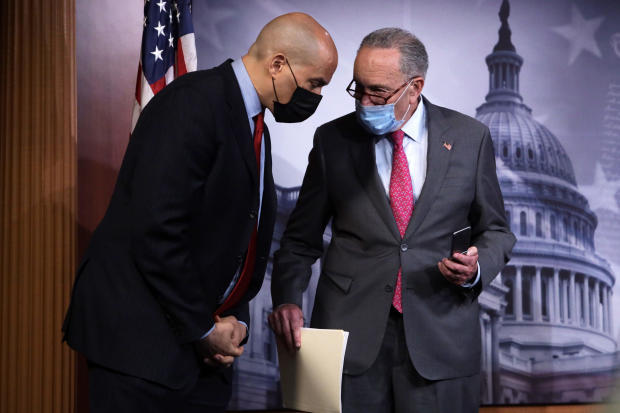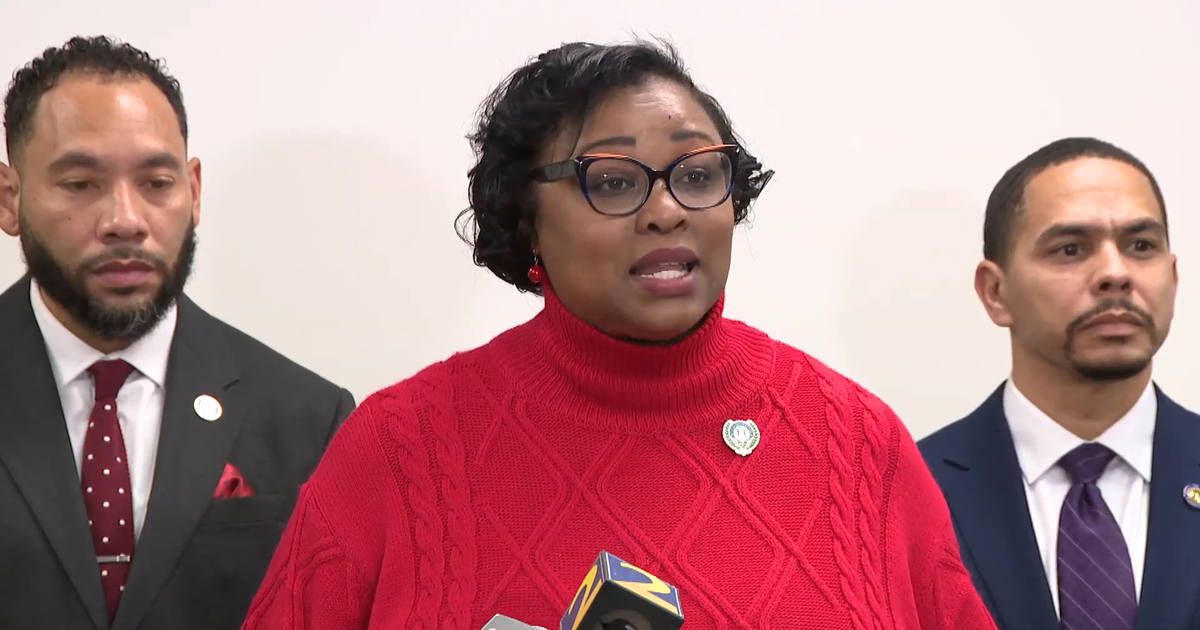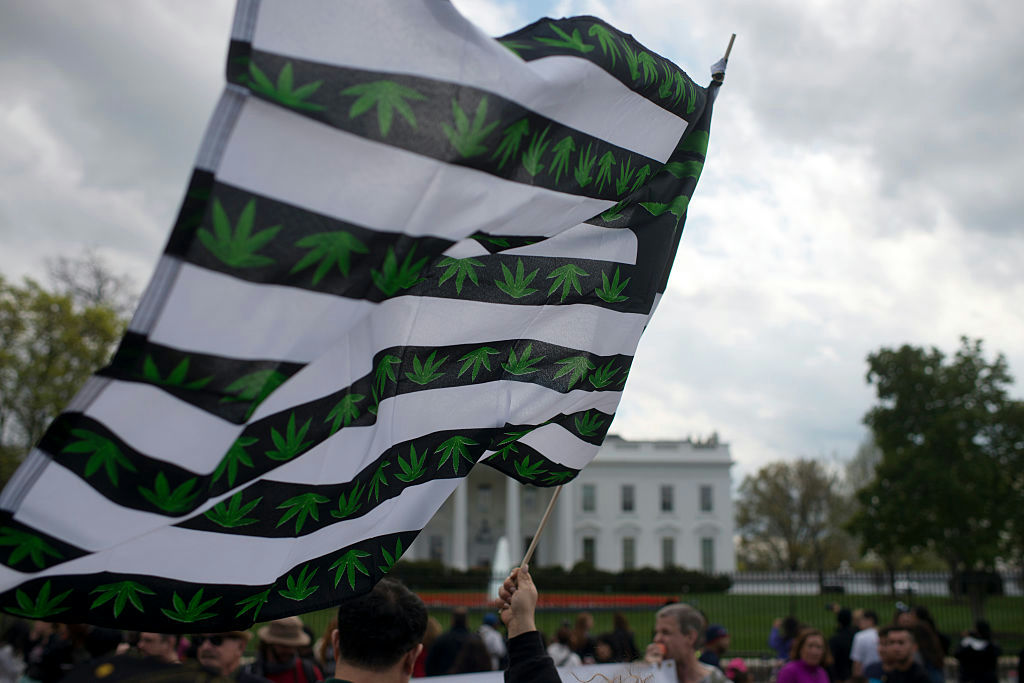3 Senate Democrats draft plan to end federal ban on marijuana
Three top Senate Democrats have a draft plan to end the federal ban on cannabis and implement a series of programs to help communities that have been harmed by the war on drugs, which have disproportionately tended to be communities of color.
Senators Chuck Schumer, the majority leader, Ron Wyden of Oregon and Cory Booker of New Jersey announced the reforms early Wednesday. The reforms come as the public has increasingly supported marijuana legalization over the past few years.
"This is monumental because at long last we are taking steps in the Senate to right the wrongs of the failed war on drugs," Schumer said at a news conference Wednesday.
Under their plan, states would be able to write their own cannabis laws and marijuana would be eliminated from the federal list of controlled substances within 60 days of implementation. The bill would shift the regulatory jurisdiction from the Drug Enforcement Agency to the Alcohol and Tobacco Tax and Trade Bureau, the Food and Drug Administration and the Bureau of Alcohol, Tobacco, Firearms and Explosives.
"Cannabis prohibition, a key pillar of the failed War on Drugs, has caused substantial harm to our communities and small businesses, and especially for communities of color," Wyden said. "It's as simple as this: Senators Booker, Schumer and I want to bring common sense to the federal government, end prohibition and restore the lives of those hurt most and set them up for opportunity."
Currently, 18 states, the District of Columbia, Guam and the Commonwealth of the Northern Mariana Islands have legalized recreational marijuana. Thirty-seven states, the District of Columbia, Puerto Rico, Guam and the U.S. Virgin Islands have legalized the medical use of marijuana. A Pew Research poll from April showed that 60% of Americans think marijuana should be legalized for recreational and medical use.
"While red and blue states across the country continue to legalize marijuana, the federal government continues to lag woefully behind," Booker said in a statement. "It is time for Congress to end the federal marijuana prohibition and reinvest in communities most impacted by the failed War on Drugs."
It is unclear how much support the bill will garner in the Senate as 10 Republicans are needed with all Democratic support for the bill to clear the 60 vote threshold. Earlier this year, the House passed a bill with broad bipartisan support that would not subject banks that provide services to cannabis businesses to penalties from banking regulators.
The senators' draft proposal states the measure "will ensure that Americans – especially Black and Brown Americans – no longer have to fear arrest or be barred from public housing or federal financial aid for higher education for using cannabis in states where it's legal." For people and communities adversely affected by the war on drugs, federal nonviolent marijuana crimes would be expunged, and those currently serving a prison sentence for a nonviolent crime would be able to petition for resentencing.
For communities impacted by the war on drugs, the bill would create three grant programs aimed at restoring justice. A community reinvestment program would provide funding to nonprofits to help people incarcerated under more draconian drug laws with re-entry services and job training.
The Small Business Administration would oversee the development of the other two programs, providing funding to states and localities for loans for small businesses in the cannabis industry and for licensing programs to reduce barriers to entry in cannabis businesses for individuals.
Asked about working on a smaller package, such as a banking bill to protect banks that serve cannabis businesses, Booker rejected the idea of supporting a banking provision that would not include restorative justice for communities. It's not clear that all of the parts of the Democrats' measure, including cannabis legalization, can attract enough support to pass.
"I don't know about other members of the Senate, but I will lay myself down to do everything I can to stop an easy banking bill that is going to allow all these corporations to make a lot more money off of this as opposed to focusing on the restorative justice aspects," Booker said.
As is the case with alcohol and tobacco, cannabis and its products would be subject to an excise tax. The tax rate would increase over a five-year period after enactment, starting at 10% and gradually increasing to 25% after five years. A tax credit that would reduce the tax rate by half would be available for smaller cannabis businesses that make less than $20 million in sales annually.




